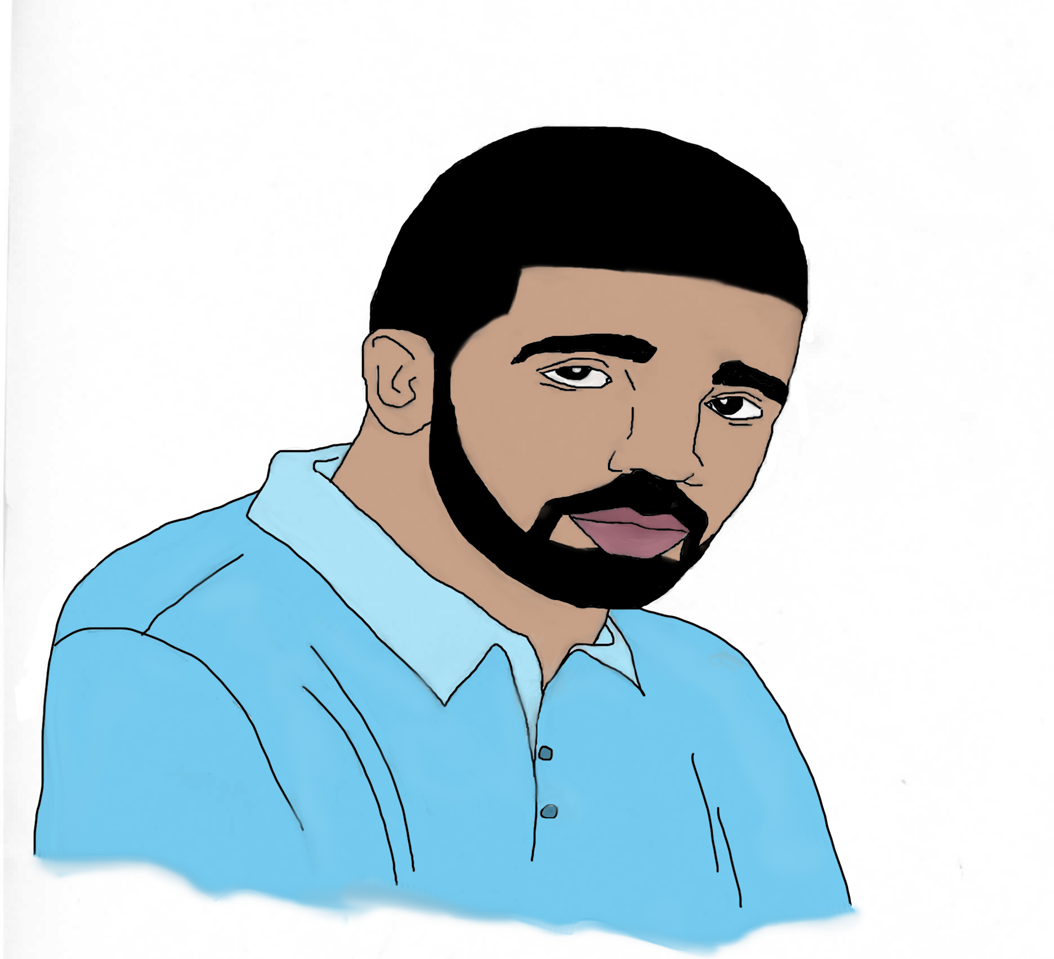Drake redefines masculinity for young men


Last week, Drake was the subject of the snub heard ‘round the Twittersphere.
On Aug. 28, Drake presented Rihanna with the Michael Jackson Vanguard Award at the 2016 MTV Video Music Awards, lauding her for her success as the presenter of her award should, but then unabashedly, in front of millions, professed his seven-year love for her on national television.
After the adulation, Drake went in for what looked like unrequited kiss after he spoke endlessly about her work, success and staying real in an industry that produces over-the-top personas to maintain their status.
The interaction — from the high praise to the rejection — was wholly Drake, the epitome of his persona. He put a woman on a pedestal, expressed his true feelings,and walked away with his tail between his legs — all of the characteristics of “soft” Drake.
Then, in a seemingly not-so-soft move this week, the Canadian rapper opened a new “dance experience” club — subtext: exotic dancing — in Houston called The Ballet. But his club has a twist: women are quite literally going to stand on pedestals and the dress code is strictly business attire. He wants to appreciate exotic dancing as an art and a chosen job, and hopefully, he’ll follow through with this plan. Much like a rapper founded by Lil Wayne who doesn’t play the “rap game” quite like those who came before him, Drake is now a nightclub owner with a mission to change the way nightclubs operate.
In the world of hip-hop, where being “soft” and sensitive is taboo, Drake has managed to overcome the status quo and achieve 85 Billboard Hot 100 Entries. While artists such as Lil Wayne may take an occasional break from rapping about “Sicilian bitches” to release more benign, less misogynistic songs such as “How to Love,” it’s atypical for rappers to do that as often as Drake does. In fact, rappers and rap fans often ridicule his knack for romanticism, calling Drake “soft” and not a “real” rapper.
Yet the hip-hop and rap genres claim the youngest audience among all others, meaning the most impressionable people in our country regularly listen to artists who boast their hypermasculinity and portray manhood as being rough, violent and aggressive. Drake has painted himself as a gentle, funny guy. Of course, he’s not all mush, and he’s not perfect — he’s made it clear he still likes being called “Big Daddy” in the bedroom.
But Drake’s popularity means that more young men are listening to lyrics that portray men as being capable of the same emotions as women who ruminate on their ex, who document sexual triumphs as more than just tally marks and who — gasp — even cry.
Since the 2010 release of the album that launched his career, “So Far Gone,” Drake has remodeled masculinity’s potential to be something other than pompous and brawny with no room for compassion or sensitivity. This is striking because he’s done so in a genre of music that had originally not been exposed to such behavior. He is proof that respect for women and emotional sensitivity can not only be successful but praiseworthy.
Considering “manhood” is a concept that differs from man to man, and the ways in which it’s portrayed in the music young men listen to means artists such as Drake have an impact on how men portray masculinity throughout their lives.
While many rap lyrics mentioning women reduce them to objects, some lyrics actually discuss more sinister acts against women such as physical violence. I hesitate to even utter Tyler, The Creator’s lyrics in “Bitch Suck D***,” where “bitch” is repeated 26 times, and lyrics such as, “Your bitch work for me, she my dishwasher,” could be considered one of his more PG lines.
Despite rap’s original “Golden Rule” being peace, love, unity and having fun, mainstream corporate rap in the ’80s caused a rapid paradigm shift that normalized bashing homosexual people and trashing women. It has become a dangerous game of who is the baddest and who is the most unhinged.
According to the New York State Office for the Prevention of Domestic Violence, discussing what it means to be a “man” with young men can help begin the lifelong conversation about their role in preventing and ending violence against women. This includes telling young men that sensitivity and strength can coexist, and in a genre of music that has shunned sensitivity, Drake is a successful figure that should encourage the next generation of men to purge violence as a tactic when interacting with women.
In a 2006 psychology study by Ludwig Maximilians University Munich, male participants were exposed to either sexually aggressive misogynistic lyrics or neutral lyrics. The men who were exposed to the sexually aggressive lyrics demonstrated more aggressive behavior toward women.
Whether you consider Drake a real rapper or not due to his unabashed compassion and sensitivity, his influence is undeniable. Frankly, I’d be floored if anyone were to bring me a 15-year-old who didn’t know the lyrics to “One Dance.” And for once, I’m glad the kids are listening.
From “Houstatlantavegas” — the ode to a dancer Drake fell in love with and the song that has moved me to tears since 2009 — to several tracks off of the 2016 album “Views,” Drake’s M.O. is sentimentalism toward the women that have come and gone in his life.
In songs such as “Own It,” Drake covets the intimacy of lovemaking, commitment and trust as opposed to the vulgar and detached nature of casual sex that many rappers use as another leverage tool to prove their masculinity. In “Make Me Proud,” Drake raps about his affinity with educated women, a “type” that strays away from the subject of songs quite like shaking your “ass” is in Mystikal’s “Shake It Fast” or “lady lumps” in Lil Wayne’s catchy tune “Lollipop” that we all blindly danced to in middle school.
Drake rejected the glorified facades of hypermasculinity and injected the ability to be strong and sensitive, masculine and emotional in rap.
While some consider Drake to be as soft as a roll of Charmin, I take comfort in knowing my little brother is listening to Drake’s album over Eminem’s or Lil Wayne’s and that he, along with millions of other men, find Drake’s lyrics relatable, just as myself and millions of other women do.
So, indulge in exchanging a few Drake memes and don’t be ashamed when “Marvin’s Room” comes up on your Spotify playlist, and you get the feels. Drake is plenty masculine without the need to resort to violence in his lyrics, and his popularity means millions of young men must agree.
We like boys who cry when Drizzy plays, and don’t let Rihanna tell you otherwise.
Marlo Safi is a Senior Columnist for The Pitt News. She primarily writes about public policy and politics for The Pitt News.
Write to Marlo at mes26@pitt.edu
Recent Posts
College Democrats and Republicans debate pressing political topics
Around 100 students gathered to watch Pitt’s College Democrats and College Republicans debate a variety…
Great horned owls make Schenley Park their home
Local bird enthusiasts have flocked to Schenley Park to see a new family of great…
Opinion | The attacks on national parks reflect an underlying push toward isolation and ignorance
The policies enacted by the current administration reveal a wider theme of isolating all of…
‘The name had to evolve’: GSPIA becomes SPIA due to decreasing graduate enrollment
Going into the 2025-26 school year, undergraduates can now study in the School of Public…
Pitt faculty and students discuss potential effects of Trump’s executive order closing the Department of Education
On March 20, President Trump signed an executive order to close the federal Department of…
Panthers on the prowl for the big leagues
The NFL Draft is less than a month away, and Pitt football players displayed their…

